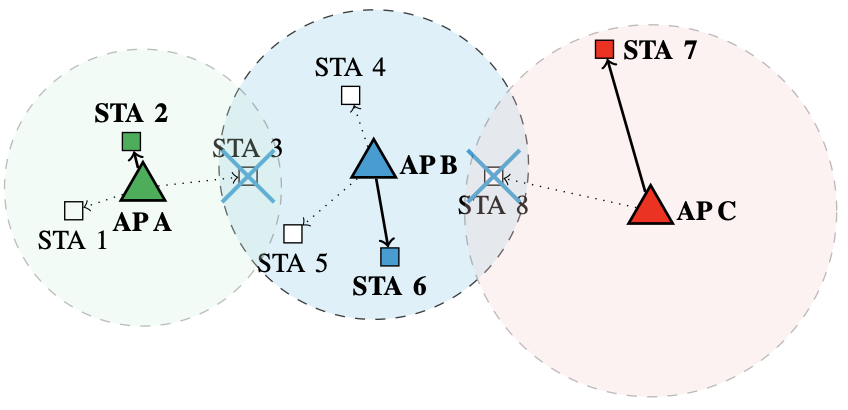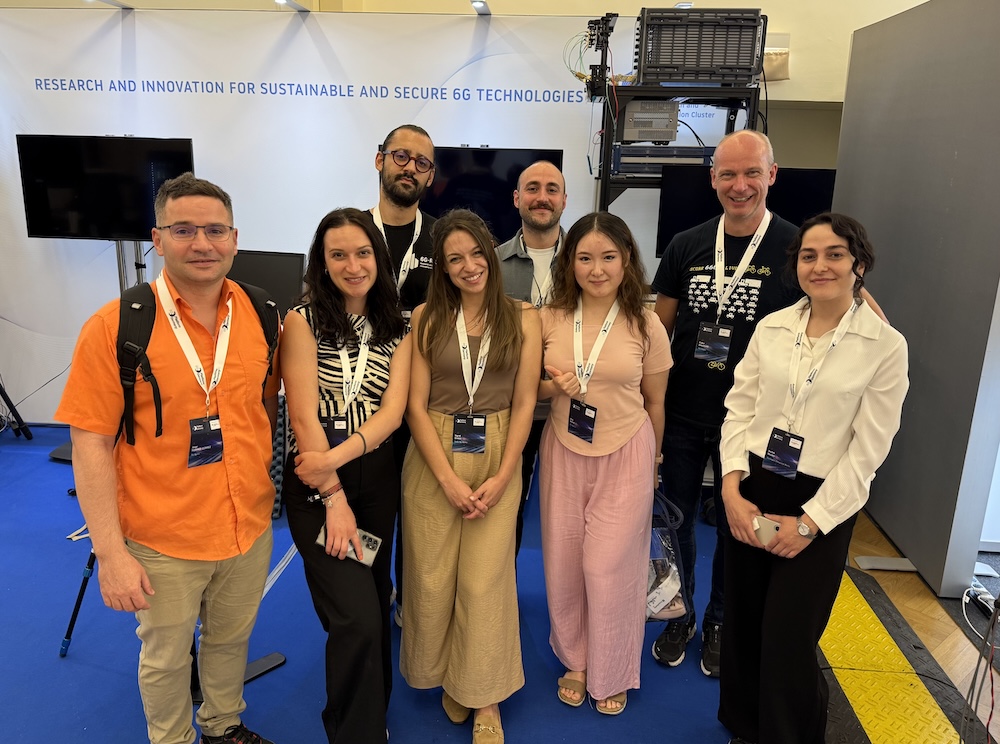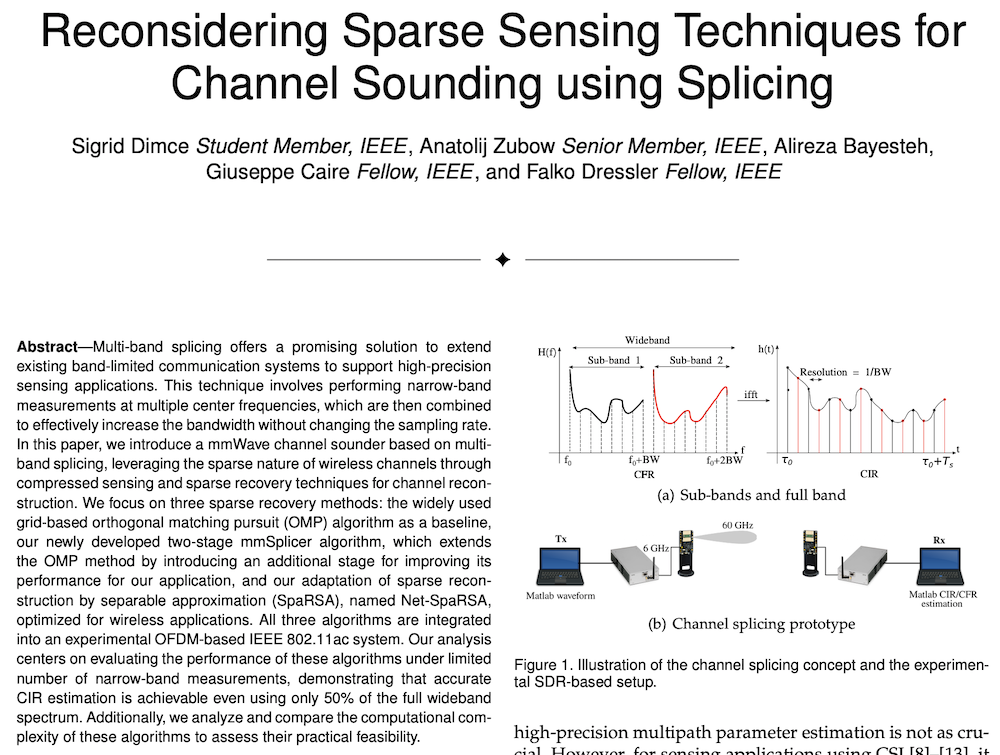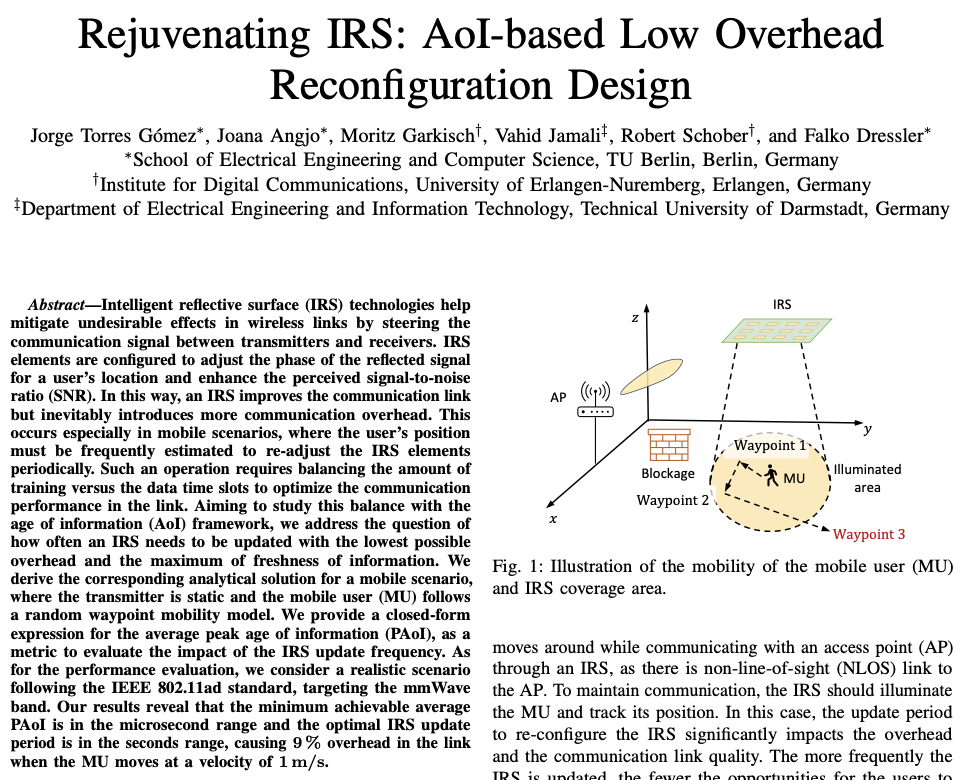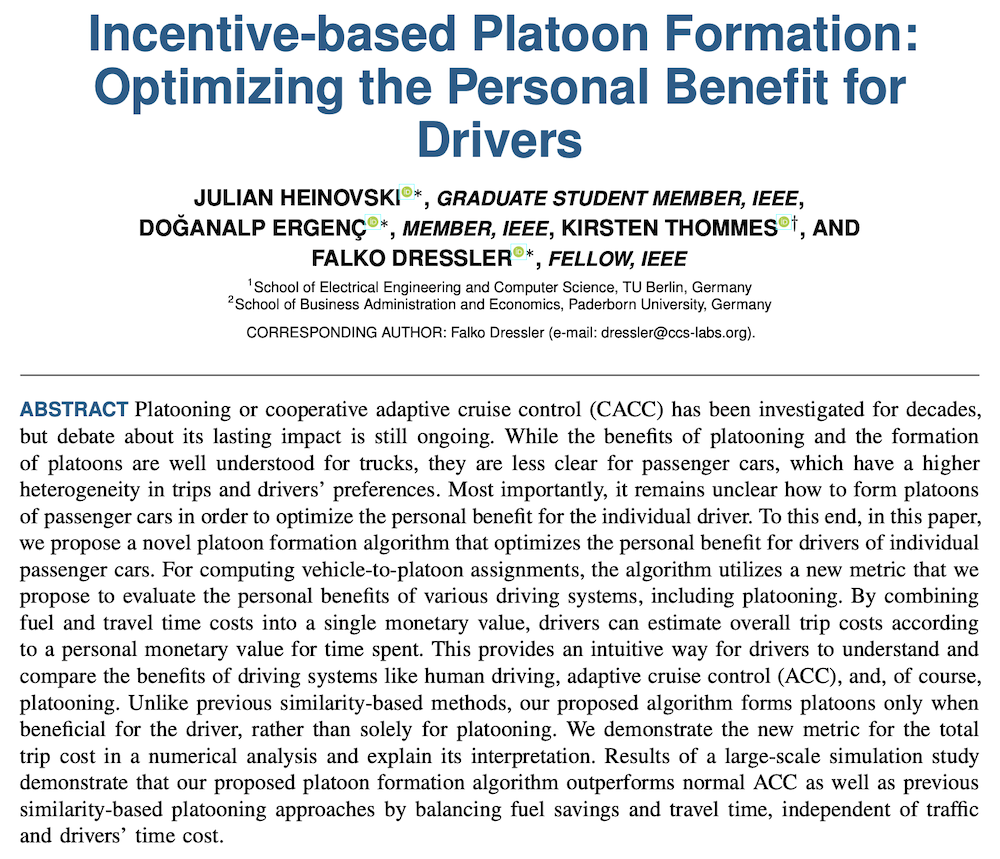Literature Database Entry
roesler2019steuerung
Sascha Rösler, "Steuerung von Software Defined WLAN durch Machine Learning-Agenten am Beispiel der Kanalvergabe," Bachelor Thesis, School of Electrical Engineering and Computer Science (EECS), TU Berlin (TUB), November 2019. (Advisor: Anatolij Zubow; Referees: Anatolij Zubow and Thomas Sikora)
Abstract
The number of WiFi devices all over the world increases. Accordingly, the WiFi infrastructure increases, too. More and more networks are offered. In enterprise networks different WiFi Access Point (AP)s are under the same control. The coverage of the various APs can overlap. This thesis offers solutions to find out the best channel allocation for a WiFi enterprise network. Therefore, UniFlex a Software-Defined-Network (SDN) framework for WiFi is extended. Machine learning (ML) agents are connected to UniFlex via OpenAI Gym. For realising this connection, this thesis introduces the framework UniFlex-Gym. This framework is independent from the problem the ML agent has to solve. The conversion of the duty into OpenAI Gym is done by an UniFlex controller. This thesis introduces different ML agents. One agent implements a Thompson sampling algorithm, the other ones use a neuronal network. The target of the agents is detecting the best channel allocation at runtime. Concerning this matter, various experiments are executed. An experiment on a small scale is executed in a real testbed. More extensive ones are simulated. The results show that the agents need a lot of time until they converge to the optimal channel allocation. For example, for a setting of 8 APs the agents take 15 minutes until converging to the best channel allocation. Moving one client in the network can change the best channel allocation. This requires a restart of the searching procedure. To conclude, finding the best channel allocation at runtime by using the introduced agents is not sufficient. As a different approach, the agent based on a neuronal network is extended to train different network configurations at the same time. Each network configuration is a static setting of APs and its allocated clients. In this approach, there is a split of training phase from execution phase. In the training phase, the agent learns from simulation. After that, the agent is able to calculate the best channel allocation for configurations it was not trained for. The agent is capable to estimate the best channel allocation for a given convergence area without any wrong decision. However, the split of training phase and execution phase results in the loss of degrees of freedom in the ML model. The success of the solution depends on the simulation’s model accuracy.
Quick access
Contact
BibTeX reference
@phdthesis{roesler2019steuerung,
author = {R{\"{o}}sler, Sascha},
title = {{Steuerung von Software Defined WLAN durch Machine Learning-Agenten am Beispiel der Kanalvergabe}},
advisor = {Zubow, Anatolij},
institution = {School of Electrical Engineering and Computer Science (EECS)},
location = {Berlin, Germany},
month = {11},
referee = {Zubow, Anatolij and Sikora, Thomas},
school = {TU Berlin (TUB)},
type = {Bachelor Thesis},
year = {2019},
}
Copyright notice
Links to final or draft versions of papers are presented here to ensure timely dissemination of scholarly and technical work. Copyright and all rights therein are retained by authors or by other copyright holders. All persons copying this information are expected to adhere to the terms and constraints invoked by each author's copyright. In most cases, these works may not be reposted or distributed for commercial purposes without the explicit permission of the copyright holder.
The following applies to all papers listed above that have IEEE copyrights: Personal use of this material is permitted. However, permission to reprint/republish this material for advertising or promotional purposes or for creating new collective works for resale or redistribution to servers or lists, or to reuse any copyrighted component of this work in other works must be obtained from the IEEE.
The following applies to all papers listed above that are in submission to IEEE conference/workshop proceedings or journals: This work has been submitted to the IEEE for possible publication. Copyright may be transferred without notice, after which this version may no longer be accessible.
The following applies to all papers listed above that have ACM copyrights: ACM COPYRIGHT NOTICE. Permission to make digital or hard copies of part or all of this work for personal or classroom use is granted without fee provided that copies are not made or distributed for profit or commercial advantage and that copies bear this notice and the full citation on the first page. Copyrights for components of this work owned by others than ACM must be honored. Abstracting with credit is permitted. To copy otherwise, to republish, to post on servers, or to redistribute to lists, requires prior specific permission and/or a fee. Request permissions from Publications Dept., ACM, Inc., fax +1 (212) 869-0481, or permissions@acm.org.
The following applies to all SpringerLink papers listed above that have Springer Science+Business Media copyrights: The original publication is available at www.springerlink.com.
This page was automatically generated using BibDB and bib2web.

